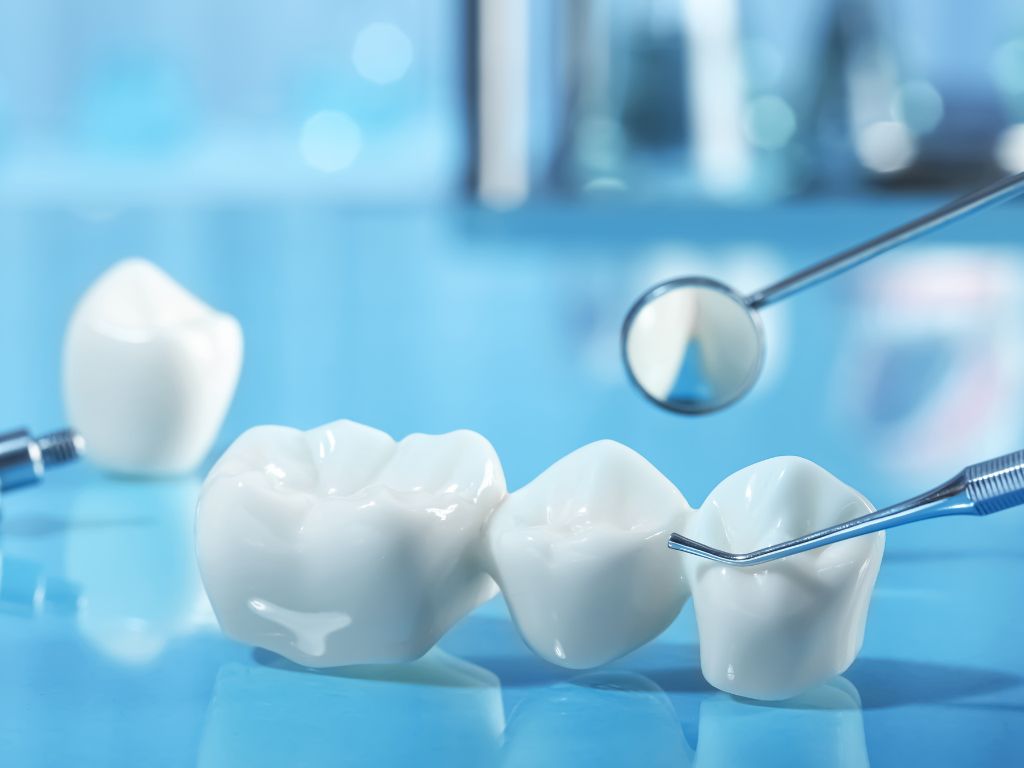Dental Veneers vs. Crowns: What’s the Difference?

Veneers and crowns are restorative solutions in dentistry. They improve the appearance and functionality of a patient’s teeth. Discover the difference between dental veneers and crowns to determine which procedure is best for you.
What Are Dental Veneers?
Dental veneers are thin layers of fine, stain-resistant porcelain that dentists apply to your teeth. For this procedure, the dentist will grind down half a millimeter of enamel on the front of your tooth. This makes the veneer’s bond easier, as the cement will stick to a rough tooth’s surface. Therefore, dentists can only place veneers on teeth with plenty of existing enamel. This is a minimally invasive cosmetic procedure, and each patient receives custom-designed veneers.
What Are Crowns?
Crowns typically restore damaged teeth. For instance, patients with decaying, cracked, or fractured teeth opt for dental crowns. Dental crowns cover entire teeth, so dentists file down natural teeth before crown placement. This is so they can remove damaged parts and rebuild some of the teeth to support crowns.
Dental crowns are either porcelain fused to metal alloys (PFM) or all-metal alloys. Dentists create crowns that fit over your tooth and then cement it in place. Crowns are more invasive than veneers, making them a bigger commitment.
How Are They Different?
The main difference between dental veneers and crowns is that veneers bond to the front surface of a tooth while crowns cover the entire tooth. Veneers are also more aesthetically pleasing than dental crowns because they’re less thick and show less gum margin.
Furthermore, crowns are permanent, but veneer patients must replace veneers after a certain number of years. The price for either procedure varies too. Some veneers range from $925 to $2,500 per tooth, and crowns range from $1,000 to $3,500 per tooth. These price ranges don’t include the procedure cost.
Veneer Pros and Cons
The biggest advantage of veneers is they’re aesthetically pleasing. Dentists don’t grind down a significant portion of your teeth, so your natural healthy teeth remain intact. The drawback to veneers is that they’re non-reversible and require replacements. Therefore, they’re expensive investments.
Crowns Pros and Cons
Crowns cover your entire tooth, making them relatively permanent. They also look and feel like natural teeth. However, the dentist removes more of your natural teeth to fit crowns over the top. Crowned teeth may also be more sensitive to hot and cold items, which can cause gum pain.
There are ways to enhance your teeth with cosmetic dentistry. At Woodstock Smiles, we offer dental bridges and other restorative dental care. Let us fix your smile by contacting us to schedule an appointment today!
